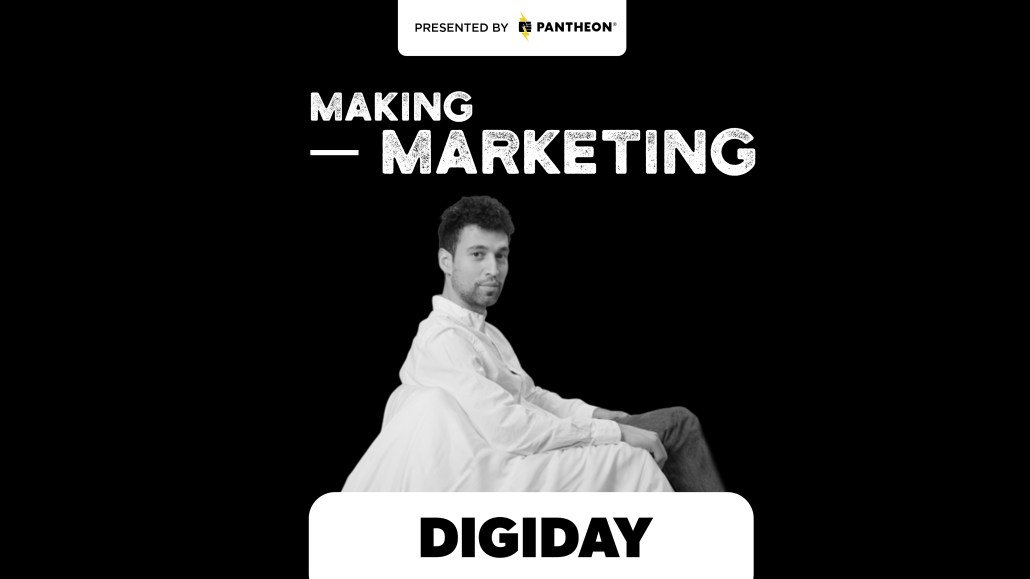Secure your place at the Digiday Media Buying Summit in Nashville, March 2-4
Buffy’s Paul Shaked: There’s a Facebook-first mentality in the marketing industry

Subscribe: iTunes | Google Play | Stitcher | RSS | Anchor
When sustainable bedding brand Buffy, launched in late 2017, it looked like the archetypical direct-to-consumer company: online presence, purpose-driven marketing and no middlemen. However, that didn’t last very long.
In one of their earliest rejections of the direct-to-consumer tropes, Buffy did not take any VC capital. Instead, the founders opted for a few angel investments, and bootstrapped the rest of its funding strategy.
“For us, we kind of candidly didn’t take any sort of big VC round,” said Paul Shaked, Buffy’s co-founder and vp of growth. “Obviously, we needed some money to get off the ground, so there was some angel investing, but we haven’t done a series A and we don’t have one planned. With that in mind, what we’re trying to achieve can sometimes feel pretty exotic, with this sustainability mission in bedding and home goods, and with that sort of strong board involvement we felt like we might not be able to learn and make mistakes in ways that would realistically happen.”
According to Shaked, growing has been at the core of Buffy’s mission since day one, so shortly after launch they moved into selling third-party on Amazon, and then into physical retail. Now that the company has reached a point of scale it is happy with, it is starting to explore non-Instagram and more non-digital forms of marketing as a way to continue growing.
In this week’s episode of Making Marketing, Shaked sits down with Shareen Pathak to discuss the many tropes of a DTC brand, Buffy’s approach to marketing and why it’s investing in its own editorial platform. Edited highlights below
A two-sided marketing strategy
“With the way that marketing works, there’s a performative side and a creative side. In order for those to be truly productive, and have an eye towards development, it’s really important to have good relationships between both sides of the coin. A lot of brands have to work with agencies, because maybe the founder group wasn’t as experienced in the creative industry, and they don’t know their way around a photography set, or how to hire a great art director, or whatever it is. What ties those two vague ideas together for us in the way Buffy does things, is that we think they’re inextricably tied. What I mean by that is just fully understanding on a very nuanced, as well as very broad level, how the customer ticks and what they really like about us. Sure, they might buy into our values, but at the end of the day, they have to like what we’re selling too, so that relationship between the creative and performative sides is how we approached everything.”
Investing in editorial content
“The thing with editorial and organic for us, is that we’ve always wanted to do it. We’ve always prioritized our internal culture around the organic content that we put out, so our Instagram is something that we’re very proud of, and something we’ve been able to be very expressive in. I think what’s really interesting these days, is that folks are always interested in finding ways to prospect or re-market customers, and that can have this kind of Facebook-first mentality. Not that folks forget about it, but I think organic is still super powerful, but the fulcrum there is authenticity. If you’re not telling a real story that people really care about, then there’s no reason for them to follow you, or care about it, or share it.”
More in Marketing

Thrive Market’s Amina Pasha believes brands that focus on trust will win in an AI-first world
Amina Pasha, CMO at Thrive Market, believes building trust can help brands differentiate themselves.

Despite flight to fame, celeb talent isn’t as sure a bet as CMOs think
Brands are leaning more heavily on celebrity talent in advertising. Marketers see guaranteed wins in working with big names, but there are hidden risks.

With AI backlash building, marketers reconsider their approach
With AI hype giving way to skepticism, advertisers are reassessing how the technology fits into their workflows and brand positioning.







